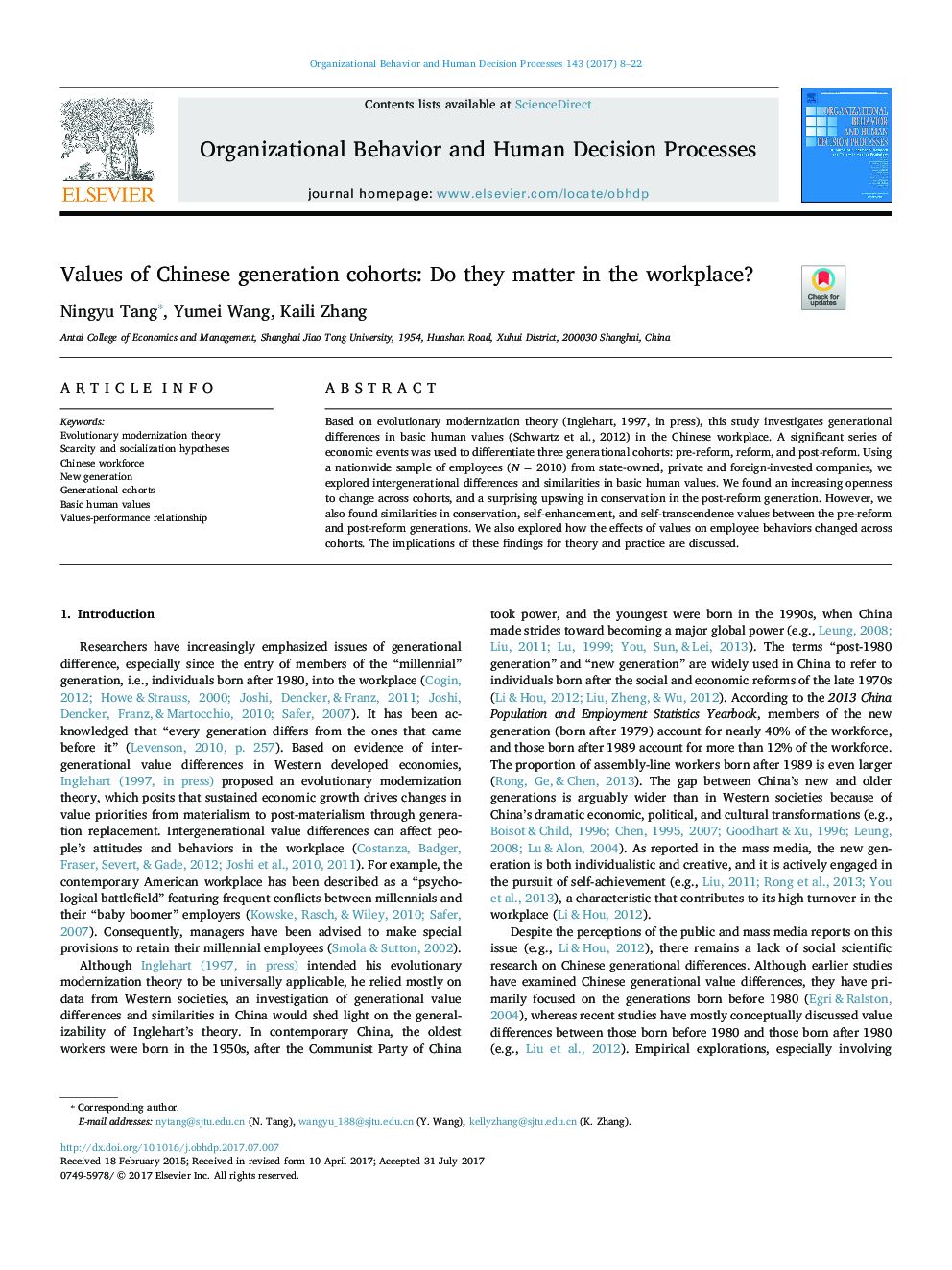| Article ID | Journal | Published Year | Pages | File Type |
|---|---|---|---|---|
| 7248079 | Organizational Behavior and Human Decision Processes | 2017 | 15 Pages |
Abstract
Based on evolutionary modernization theory (Inglehart, 1997, in press), this study investigates generational differences in basic human values (Schwartz et al., 2012) in the Chinese workplace. A significant series of economic events was used to differentiate three generational cohorts: pre-reform, reform, and post-reform. Using a nationwide sample of employees (NÂ =Â 2010) from state-owned, private and foreign-invested companies, we explored intergenerational differences and similarities in basic human values. We found an increasing openness to change across cohorts, and a surprising upswing in conservation in the post-reform generation. However, we also found similarities in conservation, self-enhancement, and self-transcendence values between the pre-reform and post-reform generations. We also explored how the effects of values on employee behaviors changed across cohorts. The implications of these findings for theory and practice are discussed.
Keywords
Related Topics
Social Sciences and Humanities
Business, Management and Accounting
Marketing
Authors
Ningyu Tang, Yumei Wang, Kaili Zhang,
